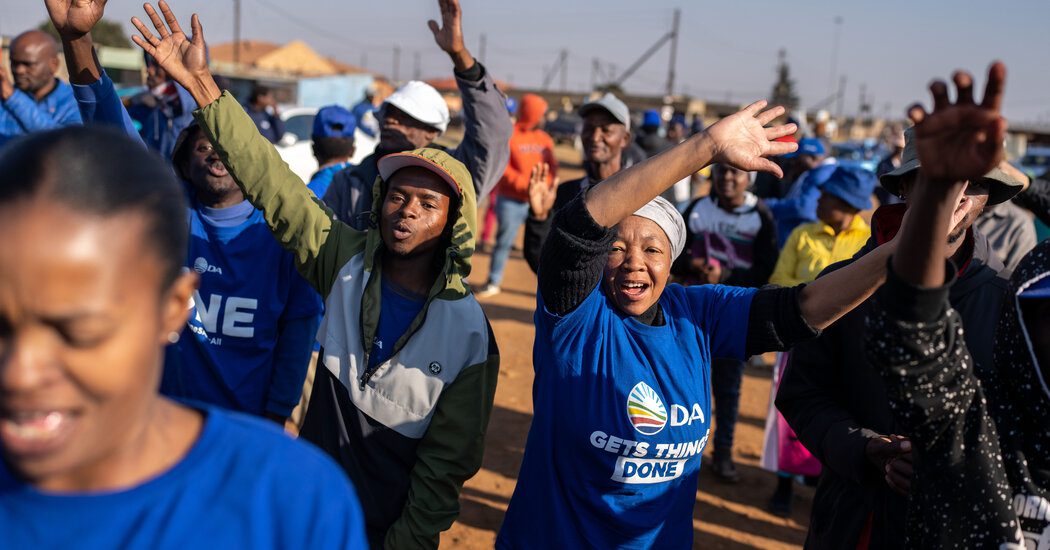Papi Mazibuko, a 50-year-old library assistant, decided it was time to switch teams and vote for the Democratic Alliance, the leading opposition party in South Africa's national elections on Wednesday.
Houses on his street in the township of Evaton, south of Johannesburg, had been without power for two and a half years due to a broken transformer. The government, led by the African National Congress (ANC), failed to solve this problem.
The neighboring municipality, run by the Democratic Alliance, had a good record of delivering basic services. So last year, Mr. Mazibuko called neighbors to a campaign event with John Steenhuisen, the party's leader, who was met with skepticism by some black voters because he is white.
“We want service delivery,” said Mr Mazibuko, who had been a member of the ANC since he was a teenager. He added that even if “a white man can make it happen, so be it.”
Opposition parties see this year as their best chance to break the political dominance of the ANC, which has comfortably won all six national elections since the first democratic vote 30 years ago. South Africa's opposition has long failed to inspire voters, political analysts say.
This year, however, many polls predict that the ANC will fall below 50 percent of the national vote. A record 51 opposition parties in the national vote are trying to sell South Africans the idea that the country would be better off without the ANC in power.
The options are diverse: from the center-right Democratic Alliance, which wants to scrap economic policies that give preferences to non-white South Africans, to the left-wing Economic Freedom Fighters, the third-largest party, which advocates aggressive wealth redistribution to the country's black majority.
